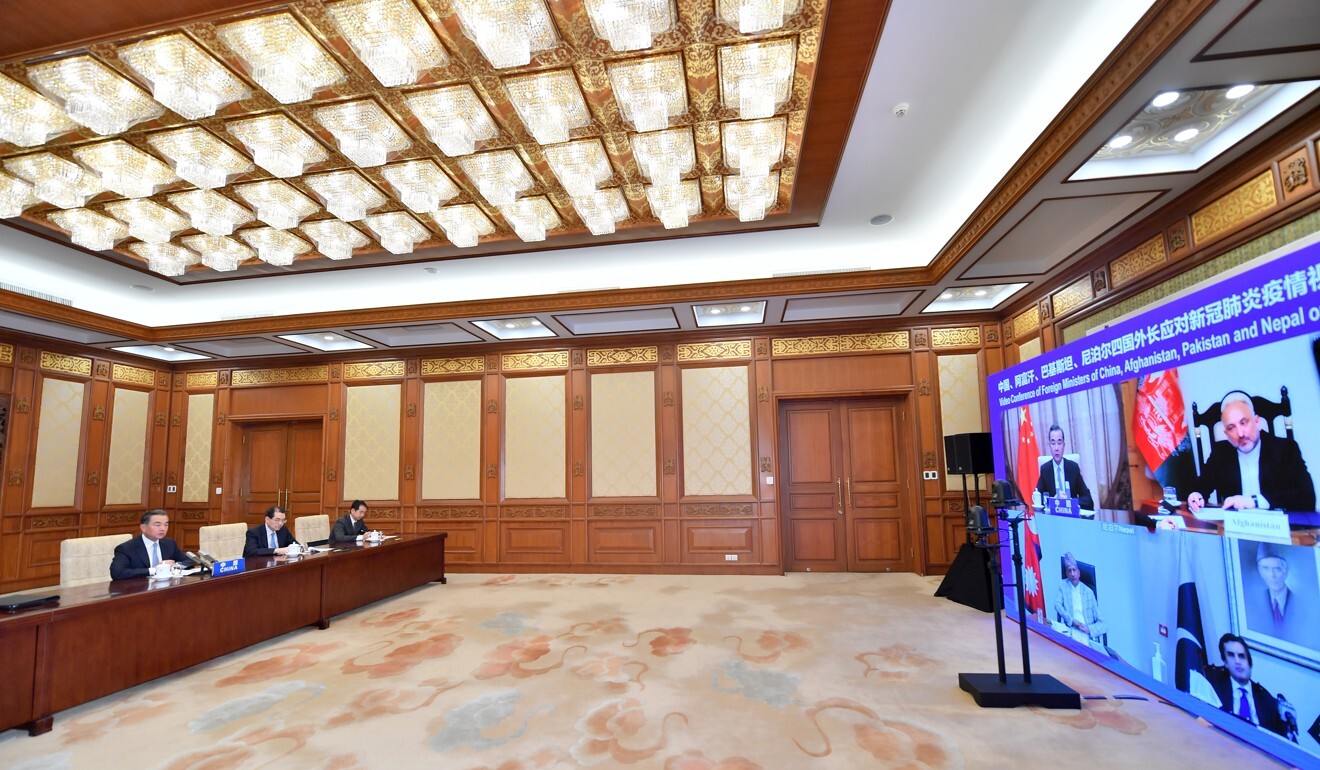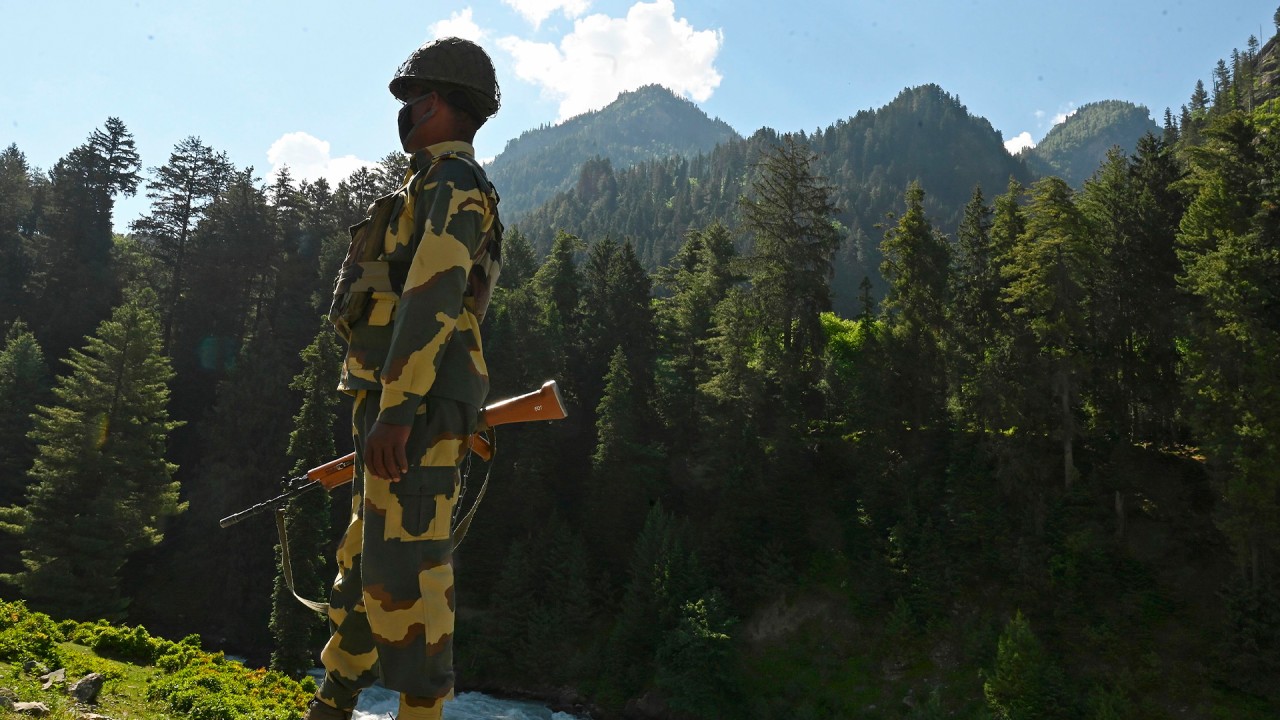
China holds meeting with Pakistan, Nepal and Afghanistan as tensions simmer with India
- Foreign Minister Wang Yi says the countries should step up cooperation for regional peace and security, and work together to curb the coronavirus
- Border friction between Beijing and New Delhi is likely to have motivated the talks that were ‘clearly meant to be pinpricks’ for India, analyst says

China has hosted its first ever quadrilateral meeting with foreign ministers from Pakistan, Nepal and Afghanistan, as Beijing seeks to step up its influence in South Asia amid unresolved border friction with India.
The video conference on Monday, which focused on coordinating the coronavirus response, took place as border tensions also simmer between India and some of its other neighbours, including Nepal and Pakistan.
Chinese Foreign Minister Wang Yi, who hosted the call, said the four countries should strengthen their connections for regional peace and security, and called for more cooperation to prevent the cross-border spread of the virus, according to a foreign ministry statement.

But the talks went beyond the pandemic, veering into areas that are likely to displease India.
Representing Pakistan, economy minister Makhdum Khusro Bakhtyar praised cooperation on China’s Belt and Road Initiative, which India has not joined because it passes through disputed parts of Kashmir that New Delhi views as being occupied by Pakistan.
Bakhtyar also called for an end to the “military siege” of “Indian occupied” Jammu and Kashmir to allow international health experts access to the region.
Both Pakistan and China lodged stern protests after India withdrew the special status of the disputed region of Kashmir and Ladakh last year, a move that affected contested territories claimed by both China and Pakistan in their border regions with India.
Madhav Nalapat, a professor of geopolitics at Manipal University in India, said the minister’s remarks would worsen the situation between China and India.
“Pakistan has further complicated the relationship between Beijing and Delhi. To allow a discussion on the subject in a meeting hosted by China is not a helpful gesture that will improve relations,” Nalapat said.
Since New Delhi’s move last August to scrap the special status, Pakistani and Indian troops have clashed along their disputed territories in Kashmir, while tensions along China and India’s border in Ladakh erupted into a deadly brawl in mid-June that left 20 Indian soldiers dead.

02:13
India and China attempt to de-escalate border tension after deaths
“The India-China tensions must have motivated the meeting,” said Srikanth Kondapalli, a professor of Chinese studies at Jawaharlal Nehru University in New Delhi.
“The talks are clearly meant to be pinpricks for New Delhi against the background of border tensions. However, Pakistan, Nepal and Afghanistan are too small to have substantial influence over the India-China border issue,” he said.
Nepal did not release an official statement on the meeting, but Foreign Minister Pradeep Gyawali, who took part in the talks, earlier this month called on India to resume negotiations on its own dispute over their porous border region as tensions rise.
Over the weekend, Nepalese police wounded two Indian villagers after border incursions from the Indian side, according to a report in the Hindustan Times.
While India has significant sway in Nepal, China’s influence has been on the rise in the landlocked Himalayan country in recent years, especially since Prime Minister K.P. Sharma Oli came to power in 2018.
But Nalapat noted that beyond South Asia, it was a different story.
“Look around you at the global situation, we can’t make the error of just focusing on the South Asia fishbowl,” he said. “The geopolitical situation is changing in India’s favour, and is getting worse for China.”
The United States has made increasing overtures to India in its border conflict with China, as Washington’s own relations with Beijing continue to deteriorate.
Last week the Indian and US navies conducted joint military exercises in the Indian Ocean, and Secretary of State Mike Pompeo urged India to reduce reliance on China in its supply chains, and to work more closely with America.